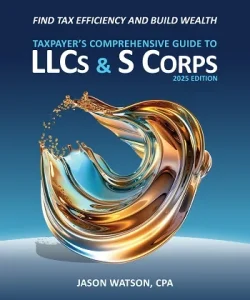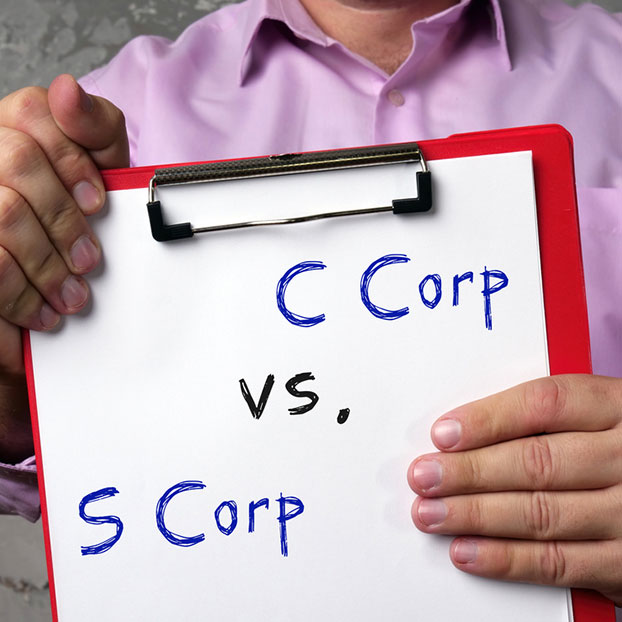
Business Advisory Services
Everything you need to help you launch your new business entity from business entity selection to multiple-entity business structures.
Hey - Our site just had a makeover and we are sorting through the hiccups!
Hey - Our site just had a makeover and we are sorting through the hiccups!

Everything you need to help you launch your new business entity from business entity selection to multiple-entity business structures.

Designed for rental property owners where WCG CPAs & Advisors supports you as your real estate CPA.

Everything you need from tax return preparation for your small business to your rental to your corporation is here.

Posted Sunday, June 22, 2025
Table Of Contents

Beyond complexity and tax footprints, your fee also depends largely on the quality of your accounting records, how organized you are, the past accuracy of your balance sheet, including how much clean up is required. We cannot repeat or continue with ghosts of poor accounting past.
You might also benefit from our Tax Patrol Service, which is tax preparation + planning and periodic chats throughout the year. Check it out!
And yes, your business tax return preparation fee could increase depending on your specific world. If so, you’ll be in a special group — the 10% group of WCG business owners. In other words, 90% of our business entity tax returns fit in the fee range above. We’ll talk more about this in a bit, but first, let’s take a step back.
Before we get too far along, there are some basics to get out of the way. You might already know all this stuff but there are others who don’t so please bear with us as we run through some small business tax preparation scenarios-
| Entity | Tax Return | Form |
| Trade Names, DBA’s Sole Props | Schedule C, Individual Tax Return | 1040 |
| Single Member LLC | Schedule C, Individual Tax Return (the LLC is disregarded for tax purposes) | 1040 |
| Multi-Member LLC Married Couple | Community Property State– Schedule C, Jointly Filed Individual Tax Return | 1040 |
| Common Law State– Partnership Tax Return. The Revenue Code is clear on this, yet most tax professionals and attorneys mess it up. It’s hard to enforce. | 1065 | |
| Multi-Member LLC | Partnership Tax Return | 1065 |
| C Corp or PC | C Corporation Tax Return | 1120 |
| S Corp Election | S corporations do not exist. Rather an underlying entity, such as an LLC or C Corp, elects to be taxed as an S Corp and as such a corporation tax return is filed. | 1120S |
The rest of this page is written for the small business owner who is beyond the sole proprietorship or disregarded single-member LLC, and needs a partnership (Form 1065) or corporate (Forms 1120 or 1120S) tax return. If you want more information on single-member LLC tax return preparation, typical fees and how it all works, please click on the button below.
You’re still here! Great! Let’s talk about each of these business entity tax returns in turn, starting with Partnerships who file Form 1065.
As alluded to earlier, if you have more than one member (owner) in your limited liability company, then you are now a fancy multi-member LLC. Yes, this includes your spouse unless you are in a community property state (WA, ID, CA, NV, AZ, TX, LA and WI). Partnership tax returns are seemingly either very straightforward or quite complex. Sure, there are some middle of the road returns, but in our experience this is a good generalization.

Sidebar: Read about the advantages of using a partnership for your rental property especially short-term rentals using the loophole and accelerated depreciation. Yeah, there are also some problems such as Section 179 limitations.
Where does this leave us? We have attempted to articulate business entity tax return complexity in the form of dollars. In terms of Colorado, we would say green squares, blue circles and black diamonds.
An operating partnership is contrasted with a holding company partnership, and includes a business that provides services or sells goods. A holding company partnership is typically a business that owns real estate, either single-family homes or commercial. In commercial settings, commonly the holding company is leasing the property to the operating company. See Real Estate Holding Company below.
| Operating Base Partnership Fee (Form 1065) | $1,500 to $1,700 |
| Holding Company Base Partnership Fee (Form 1065) | $1,200 |
| Add On: Additional Members Beyond 2 | $150 to $200 ea |
| Add On: Nutty Operating Agreement Calcs, Special Allocations | varies |
| Add On: State Apportionment Calcs Only* | $200 to $250 ea |
| Add On: State Tax Return w/ Apportionment | $300 to $500 ea |
| Add On: Local Jurisdictions (city, county, school) | $150 to $300 ea |
| Add On: Has Employees | $250 to $500 typical |
| Add On: Changes in Ownership | $250 to $500 per event |
| Add On: Business Sale | varies |
| Add On: Foreign Interests, Connections | $500 to $750 typical |
Don’t freak out and snap your pencil trying to add all this up. This is only a guideline, and frankly we’re aiming high here. For example, an operating partnership with 5 partners conducting business in 3 states is looking at $1,950 to $2,200ish using the table above. We might be able to prepare the tax returns for less; just like snowflakes, each business is unique.
| Capitalization Table Setup, Special Allocation | $125 per member |
| K-1 Setup (where your partnership receives a K-1) | see K-1s below |
Setup fees for partnerships are reserved for Operating Agreements where special allocations are being (and have been) calculated including unique ownership. This is where ownership interests vary between equity and economic (income), and / or profit, loss and capital splits vary (e.g., you own 10% but receive 80% of the profits and losses).
We have attempted to take time expectations and assign a numeric fee structure. This is an impossible task. Please keep in mind several factors. These include partnership account adjustments, adding or removing partners, and manual capital account reconciliations.
Additionally, rebuilding partner basis information, asset dispositions (such as the sale of a rental property or equipment), and non-resident withholdings calculations are important. Other considerations are entity shutdowns, odd-looking balance sheet entries, and various moving parts. Let’s not forget the equity partner versus economic partner arrangements and the mental gymnastics that might ensue from those types of deals.
The additional fees for each partner are very generic, and we leave a lot of room for discounts. Once you start hitting 5 to 6 partners, the incremental time for each additional partner is lower and lower. It’s like getting tile work at your house — the first tile labor involves unloading, preparation, mixing of the mortar, etc. and is very expensive. The labor for the next tile is way less.
The best way to solve the “what’s my fee going to be?” conundrum is to provide last year’s tax returns for review and quotation. Again, our fees above are meant to reflect generalities.
With state apportionment and tax return preparation, there are two issues at play- apportionment itself, and then state tax return filings. Apportionment is generally based on sales, property and payroll. For most small business owners, sales and payroll are the most common apportionment factors. Property comes into the mix with buildings and inventory.
Each state determines the importance of each factor. Fine, sure, whatever, right? The problem is two-fold. State tax code and courts govern your business activities, and they can be self-serving. Next, states don’t play nice between each other, and at times the same dollar can be taxed twice.

We have a separate page that describes Doing Business thresholds and basic ratios using sales, payroll and property including our general fee structure. Fun!
 As mentioned earlier, a real estate holding company partnership is generally a business that owns rental properties and usually has fewer transactions, and therefore is more straightforward (i.e, less time-consuming). There are lots of reasons to do this, as we outline below.
As mentioned earlier, a real estate holding company partnership is generally a business that owns rental properties and usually has fewer transactions, and therefore is more straightforward (i.e, less time-consuming). There are lots of reasons to do this, as we outline below.
A partnership has an Operating Agreement which formalizes the relationship. Sure, you can own something with your brother-in-law as joint tenants or tenants in common, but a formal entity is good protection for everyone (and also serves a smooth way to transfer ownership as necessary). As a quick sidebar, you might want to create a partnership intentionally between you and your spouse (or some close relative) to reduce your risk. Quickie recap of the benefits of using a partnership tax return for your rental property–
You might be a member in a multi-member LLC or LLP or some variant, and the sole purpose of the entity is to bring a group of investors together where pooled assets purchase other investments. For example, you and a handful of people throw some money into the pot and buy investment tranches that produce K-1s (mostly because you don’t meet the investment minimums as individuals).
You need a partnership to formalize the arrangement and a common place for the money transactions. This in turn, and since there is commercial substance with taxable activities, requires a partnership tax return. Our fees are similar to the real estate holding company structure above since the transactions are fewer, but might vary depending on the complexity of the structure. Usually a quick discussion can clear things up.
Corporate tax return preparation can be more straightforward than partnership tax returns. The rules of engagement are more rigid. Partnerships are virtually limitless when it comes to who gets what, splits, allocations, etc. which is why they are an ideal entity arrangement when there are multiple parties with wildly different interests, participation, and objectives.
C corporations including professional corporations, and any entity taxed as an S corporation can expect the following:
| Operating Base S Corporation Fee (Form 1120S) | $1,500 to $1,700 |
| Operating Base C Corporation Fee (Form 1120) | $1,500 to $1,700 |
| Holding Company Base Corporation Fee (Form 1120) | $1,200 |
| Add On: Additional S Corp Shareholders Beyond 2 | $150 to $200 ea |
| Add On: State Apportionment Calcs Only* | $200 to $250 ea |
| Add On: State Tax Return w/ Apportionment | $300 to $500 ea |
| Add On: Local Jurisdictions (city, county, school) | $150 to $300 ea |
| Add On: Has Employees | $250 to $500 typical |
| Add On: Changes in Ownership | $250 to $500 per event |
| Add On: Business Sale | varies |
| Add On: Foreign Interests, Connections (Form 5471, etc.) | $750 to $2,500 typical |
We mentioned that corporation tax return preparation can be more straightforward than partnership tax returns. But! For our foreign owners of C corporations, additional time is necessary for possible back-up withholdings, Form 5472, Form 8233, W-8 BEN and tax treaties, among other issues that need special handling. In these situations, our tax preparation fee will be a minimum of $2,500 for any C corporation owned by foreign investors or owners. This gets tricky really fast.
Similar to partnerships (see above), we offer a discount for several shareholders since after the first handful, the incremental time is low. And there’s more: shareholder allocations of net operating income and any separate items (such as Section 179 depreciation, capital gains, etc.) is much more straightforward and the nutty calculations from exotic deal structures doesn’t exist. In contrast, partnerships and multi-member LLCs might be simple, or they might be very complicated from a deal structure and allocation perspective.
Many clients ask how K-1s affect their personal tax return preparation fees. The short answer: it depends — because not all K-1s are created equal. K-1s used to be only for the rich and shameless. However, with the rapid rise in various investments beyond mutual funds, ETFs, stocks and bonds, K-1s are becoming very common for the casual investor. As we see it, there are three types of K-1s-
If you are new to WCG CPAs & Advisors, or if you have recently acquired an investment or business interest that issues a K-1, here are typical set up fees-
| K-1 Setup, Straightforward | $25 ea |
| K-1 Setup, Complex (most are straightforward) | $50 ea |
Those are one and done fees, and the following are tax preparation, or recurring, fees-
| K-1 Entries, Low Activity, Trusts / Estates | $25 ea |
| K-1 Entries, Moderate Activity, Publicly Traded Partnerhip (PTP), Rental HoldCo | $75 ea |
| K-1 Entries, Complex, Real Estate Syndicate, Private Investment | $100 to $150 ea |
| Add On: Streamlined State Tax Return (in addition to your resident state) | $125 to $200 ea |
| Add On: K-1 Disposition, Sale, Final K-1, Gain/Loss Calcs | $150 to $350 ea |
Geek speak for fun tax and accounting stuff. Let's run through this-
Here are some K-1 issues that add complexity
Unfortunately, the sales team and in most cases your financial advisor, don't fully understand the tax complexity they are creating when they put you into these investments. No biggie if they are worthwhile investments, of course, but additional tax return preparation fees might need to be considered when evaluating your investments. This includes layering or "tranche'ing" your overall investment such as taking $500,000 and buying ten $50,000 positions of the same investment / security. Insta-complexity.
Let’s set up a time to review your tax footprint, concerns and objectives as we gear up for tax return preparation. Not sure if a late S Corp election makes sense on your business entity and subsequent tax return?

Let's schedule a 20-minute discovery meeting with one of our Partners or Senior Tax Professionals to understand your tax footprint and objectives, and how WCG CPAs & Advisors might help.

Taxes can be tricky. Chat with a WCG human now and get questions answered.
What the heck is a composite tax return? According to The Tax Adviser,
“a composite return is an individual return filed by the passthrough entity that reports the state income of all the nonresident owners or, in some cases, the electing members, as one group. Filing the composite return can also relieve the passthrough entity of the withholding requirement that many states impose on passthrough entities with nonresident owners. The state gets its money while the owners’ personal filing obligations are reduced.”
Sounds cool, right? Well, maybe! There are situations where this makes sense, and there are clearly situations where it does not. When it works, it works really well.
If you are operating a pass-thru entity such as a partnership filing Form 1065 or an S corporation filing Form 1120S, and you have multiple owners in multiple states, we should chat.
 WCG CPAs & Advisors and Jason Watson, CPA, have released the 2025 Edition of Taxpayer’s Comprehensive Guide to LLCs and S Corps. Over 400 pages of pure pleasure! This edition has updated 2025 data such as IRA and 401k limits including Social Security wage limits, but it also has a bunch of new information spread out various chapters such as customized multi-entity structures, expanded reasonable shareholder salary sections, more tax reduction mechanics among various little tidbits gleaned from hundreds of small business consultations. Riveting!
WCG CPAs & Advisors and Jason Watson, CPA, have released the 2025 Edition of Taxpayer’s Comprehensive Guide to LLCs and S Corps. Over 400 pages of pure pleasure! This edition has updated 2025 data such as IRA and 401k limits including Social Security wage limits, but it also has a bunch of new information spread out various chapters such as customized multi-entity structures, expanded reasonable shareholder salary sections, more tax reduction mechanics among various little tidbits gleaned from hundreds of small business consultations. Riveting!
It is available in paperback for $49.95 from Amazon and as an eBook for Kindle for $39.95. Our book is also available for purchase as a PDF from ClickBank for $29.95. Why do we all love 95 cents? We all know that 39.95 is really 40 bucks. At least we are not like gas stations… $39.949. Silly! Yet we digress. Apple iBook, Barnes and Noble Nook, among others are not utilized since their format is challenging to make mini updates here and there.
How can I avoid self-employment taxes? This simple question was the inspiration for creating an article describing the benefits of an S Corporation. That original article, which was about four pages long, quickly became a series of Knowledge Base articles on the WCG website. The articles touched on basic topics such as how to elect S Corp status, shareholder payroll, reasonable salary determination and liability protection. Those broad topics demanded much more information, both horizontally by spanning into more related issues, and vertically by digging deeper into the granular yet riveting levels of the tax code. Beyond general S Corp benefits, our book will show you-
This book is written with the general taxpayer in mind. Too many resources simply regurgitate complex tax code without explanation. While in some cases tax code and court opinions are duplicated verbatim because of precision of the words, this book strives to explain many technical concepts in layperson terms with some added humor and opinions. We believe you will find this book educational as well as amusing.
Each week we receive several phone calls and emails from small business owners and other CPAs across the country who have read our Taxpayer’s Comprehensive Guide to LLCs and S Corps and praised the wealth of information. Regardless of your current situation, whether you are considering starting your own business or entertaining a contracting gig, or you are an experienced business owner, the contents of this book are for you.
While this book’s origins were based on reducing self-employment taxes through an S Corporation election, it has dramatically expanded to sound business advice from entity structures to operational considerations to business tax deductions and retirement planning.
Enjoy! And please send us all comments, hang-ups and static. This book is as much yours as it is ours, except the tiny royalty part- that’s ours. Stop by and we’ll buy you a beer with the pennies.
While we have you, please check out our rental property book aimed at real estate investors, I Just Got A Rental, What Do I Do?
If you buy our 430-page book and think that we didn’t help you understand small business tax law or the benefits of S corporations, let us know. We never want you to feel like you wasted your money. If you are ready to add some insightful reading into your day, click on one of the preferred formats. Amazon is processed by Amazon, and the PDF is safely processed by ClickBank who will email you the PDF as an attachment.
 |  |  |
| $49.95 | $39.95 | $29.95 |

Tax planning strategies are commonly addressed in December, as small business owners and other taxpayers start to freak out about bringing in the New Year. However, tax planning is an ongoing and fluid dynamic, and it should be performed methodically throughout the year. The uneasiness of not knowing your tax obligations is avoidable! Got a big fat raise? Booyah! Just sold a rental? Your spouse is going back to work?
Sure, we can slam things together on December 31, but that is operating in crisis mode. Rather, operating in planning mode throughout the year allows for better decisions and better tax savings. Tax planning is a valuable service that most tax professionals don’t readily offer… but WCG does! It is included in our Business Advisory and Tax Patrol Services, including standalone Tax Plans. Click the buttons below for more information.
Let’s do some tax planning and see if you should spring for the new car, or stick with the lightly used one.
As professionals, our pride and ethics will not let us submit a tax return that’s (in all intents and purposes) one hot mess. More often than we like, we inherit another accountant’s previous tax and accounting work, and some basics on S corp taxes or partnership taxes were overlooked. Let’s not forget:
In these situations, we’ll advise you on the best course of action, the fees, and the risks involved. Most problems involve the balance sheet and specifically equity accounts, which are rarely important until it is time to sell, close your doors and / or get a loan. You run a clean operation, let us make sure your books and business tax returns reflect the same pride you have in your business.
Typically, we will extend the tax returns with your permission and work with our Accounting Services team to rebuild or restate the financial statements.

With C Corp tax rates lower than most individual tax rates, you might wonder about the benefits of an S Corp. Learn how!
The best reason to use a small business accountant is to allow you to focus on what you do best with your time. Let us handle what we do best with ours. Sure, you can go online and purchase the latest version of QuickBooks. However, the potential drawbacks of that decision can be subtle but significant.
First, QuickBooks makes everyone feel like an accountant. Accounting is a profession, not a hobby, and it extends way beyond reconciling a checkbook. Far too often, we hear: “what do you mean my books aren’t in good order? I don’t understand. All my accounts are reconciled!”
We’ve learned business owners are great at making widgets and aren’t too bad at reconciling a checkbook, but they’re typically lousy at accounting. Phantom income from invoices, negative balance sheet accounts from incorrect payroll entries, missed tax deductions from improper coding — we could go on and on like a Journey song.
Second, WCG is a CPA firm who provides accounting, payroll, tax preparation and small business consultation. Our approach to accounting, which we define as bookkeeping + analysis, is:
Keep in mind that banks, lenders, and IRS agents prefer a set of accounting records and financials that have been prepared by a small business accountant with the involvement of a Certified Public Accountant. Remember, these professionals review financial records every day, and they can quickly spot accidental inconsistencies and errors.
Most importantly, would you rather be closing your next sale, BBQing on a Sunday with buddies, or getting sucked into the world of accounting at the hands of your latest QuickBooks purchase? Focus on growing your business, and your small business CPA will focus on analyzing the data for operational considerations and reporting it to the IRS while minimizing the tax consequence.
We have a handful of jumping off points-
| Monthly Accounting (bookkeeping + analysis) | starting at $525 / month |
| Bi-Monthly Accounting (bookkeeping + analysis every 2 months) | starting at $280 / month |
| Quad-Monthly Accounting (bookkeeping + analysis every 4 months) | starting at $190 / month |
| Annual Compliance Bookkeeping | starting at $1,200 annually |
| Annual Accounting | starting at $1,800 annually |
| Rental Property Bookkeeping | starting at $1,200 annually |
All starting points assume two bank accounts (such as one checking and one credit card) and fewer than 250 transactions per month. Do we really count each transaction? No, but we have to start somewhere.
WCG is a leader in finding value for our clients, and as such we have introduced the unique bi-monthly cadence for reconciliations and financial statements. For some business owners, this works perfectly since they still get data frequently for operational considerations and the “where am I spending my money” question, but at a lower fee. Frankly, going from 12 deliverables to 6 allows you, the busy business owner, to focus more on the impact of each set of financial statements and not be distracted by noise created simply because of frequency.
Quad-Monthly (every 4 months or 3 times a year) is designed for the small business owner who doesn’t rely on their financial statements to assess the health of their business or need them for periodic business reviews, including advanced tax planning. They are more interested in taking chores off their plate, recording all valid tax deductions and being prepared quickly for an early business tax return.
Deliverables are around May / June and then again in September / October. When considering that our tax planning season is May, June and July, the predictability of the future based on a singular May / June financial statement can be challenging. This is where you, the savvy business owner, comes in to help use the limited history to predict the future.
Annual Accounting Services are available but they come with a massive limitation. We can only perform annual accounting starting in April. Why? January, February and March are nutty for our Accounting Services Team as they wrap up all the monthly, bi-monthly and quad-monthly cadences above and synthesize a tax package for timely tax return preparation. Wait! There’s more.
Annual accounting services come in two variants-
Compliance Bookkeeping – this is where we download a year’s worth of data from your bank, categorize the transactions and then build basic Excel pivot table for tax return preparation. We do not necessarily reconcile checking or credit card accounts. We also do not create a financial statement package (profit and loss, balance sheet, general ledger, etc.). This is purely designed to help the busy business owner offload a chore to others for tax return preparation.
Accounting Services – this is typical accounting services where we create a financial statement package using QuickBooks Online. When would you use this over the compliance bookkeeping variant? If you already have a QBO subscription then why not? If you have other owners or stakeholders who require full-blown financial statements.
As mentioned above, most partnership and corporation tax returns can be prepared between $1,500 and $1,800. Having said that, if you maintain your own financial records or accounting books, our past experience has suggested that an extra 3-5 hours will be required to properly prepare your business tax return. Specifically, most errors center on general balance sheet issues, retained earnings and payroll. And these areas of your corporation’s financial records are critical in terms of accuracy.

Learn about important tax deadlines, document checklists and due dates, and other business tax return info. Yay!
All partnership and corporation tax returns are reviewed with you in-person, over the phone or video conferencing with Teams. While a lot of our interaction might be electronic, we prefer to handle business tax returns more traditionally. In our experience, reviewing a business tax return together provides you with some education on how a business tax return comes together, allows you to ask valuable questions and ultimately creates a better tax return.
It is rare, like super rare, that the tax return is not improved when reviewed with you directly- your intimacy and knowledge of the flow of money and related matters is amazingly helpful.
Small businesses is a primary core competency for us. Of course, we will prepare the owners’ individual tax returns as well, but the majority of our consultation and tax preparation work is focused on businesses. We’re your small business CPAs! Just like Farmers’, we know a thing or two because we’ve seen a thing or two. Oh, stop rolling your eyes- it’s a fun slogan and their jingle is catchy too. GEICO still takes the cake on funny commercials. We digress.
WCG is in the business of developing lasting relationships and not money grabs. If we run into a buzz-saw we will stop, advise you of the additional work that is needed and provide a fee range that everyone can live with.
We also have a short list of additional fees that might be incurred depending on your tax situation. We really hate to be ticky tack with these things; however, there are certain situations that require a ton of extra time and resources. The vast majority of our clients do not have additional fees beyond the fee ranges above, since we try to maintain a long-term perspective on client relationships. Please visit our fee info page for more information.
In other unicorn-type cases, we have also reduced our tax preparation fee to $800 to $1,000 for extremely simple corporate tax returns or for “no activity” filings. Please contact us if you think this might be your situation. Yes, we believe in unicorns (above a 9 hot and below 5 crazy)!

Read about our philosophy on fees, how they change, and what influences your tax prep costs.
Many CPAs will prepare a partnership or corporation tax return without a balance sheet– for certain situations, the IRS doesn’t require a balance sheet. However, we feel that it is sound tax preparation practice to create this financial document in conjunction with your tax return regardless.
Partnership and S Corporation tax returns also must track shareholder basis for future sales or loss deductions. Most tax corporate tax accountants don’t spend the time to record this information, and when you go to sell your business, capital gains becomes a big mystery. No shortcuts at WCG!
A small business can have a funny way of becoming bigger, and replicating poor accounting practices as you grow can create a much larger problem later. We prefer to lay the groundwork today for an easier growth transition and exit strategy planning. This is to your advantage.

Learn about the 185 small business tax deductions you cannot take and explain how to position yourself on allowable business tax deductions.
WCG is tax and business consultants, not just number crunchers. Anyone can balance a checkbook, print a paycheck, and put the right number in the right blanks. But we take a consultative approach to your corporate and partnership tax preparation. You can always find someone to do it for less, of course! However, consider the solid back-end support which you will get with WCG that other tax preparation companies or small business CPAs might not provide. Read more about our Value Proposition here.
We are your business tax return preparation experts!
Table Of Contents

Tax planning season is here! Let's schedule a time to review tax reduction strategies and generate a mock tax return.

Tired of maintaining your own books? Seems like a chore to offload?
Did you want to chat about this? Not sure if your business is required to file a tax return? Are you wondering how a late S corporation election works, and why it might save you taxes?
The tax advisors, business consultants and rental property experts at WCG CPAs & Advisors are not salespeople; we are not putting lipstick on a pig expecting you to love it. Our job remains being professionally detached, giving you information and letting you decide within our ethical guidelines and your risk profiles.
We see far too many crazy schemes and half-baked ideas from attorneys and wealth managers. In some cases, they are good ideas. In most cases, all the entities, layering and mixed ownership is only the illusion of precision. As Chris Rock says, just because you can drive your car with your feet doesn’t make it a good idea. In other words, let’s not automatically convert “you can” into “you must.”
Let’s chat so you can be smart about it.
We typically schedule a 20-minute complimentary quick chat with one of our Partners or our amazing Senior Tax Professionals to determine if we are a good fit for each other, and how an engagement with our team looks. Tax returns only? Business advisory? Tax strategy and planning? Rental property support?

Everything you need to help you launch your new business entity from business entity selection to multiple-entity business structures.

Designed for rental property owners where WCG CPAs & Advisors supports you as your real estate CPA.

Everything you need from tax return preparation for your small business to your rental to your corporation is here.


